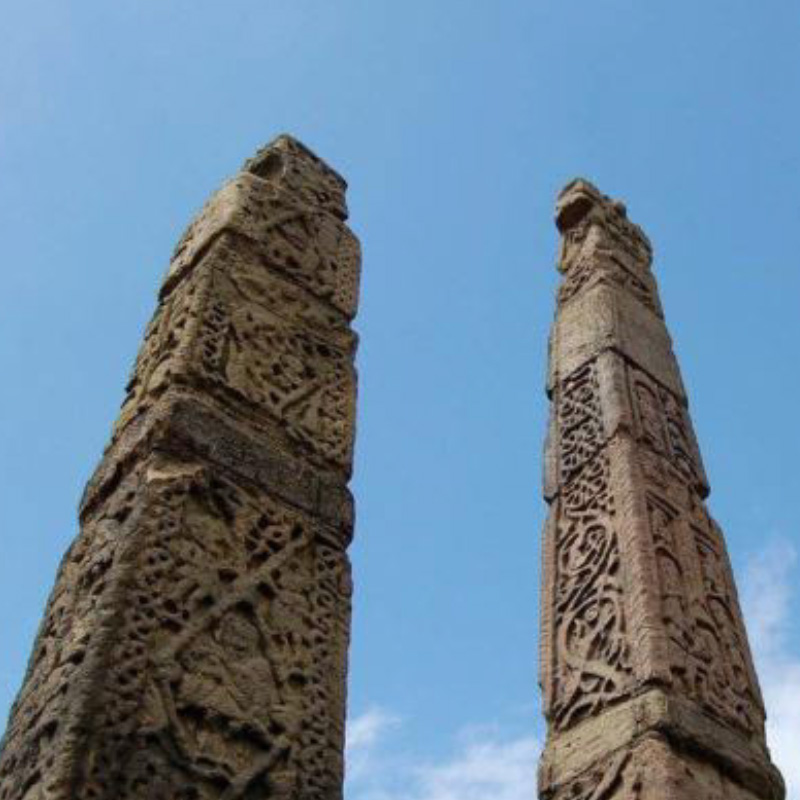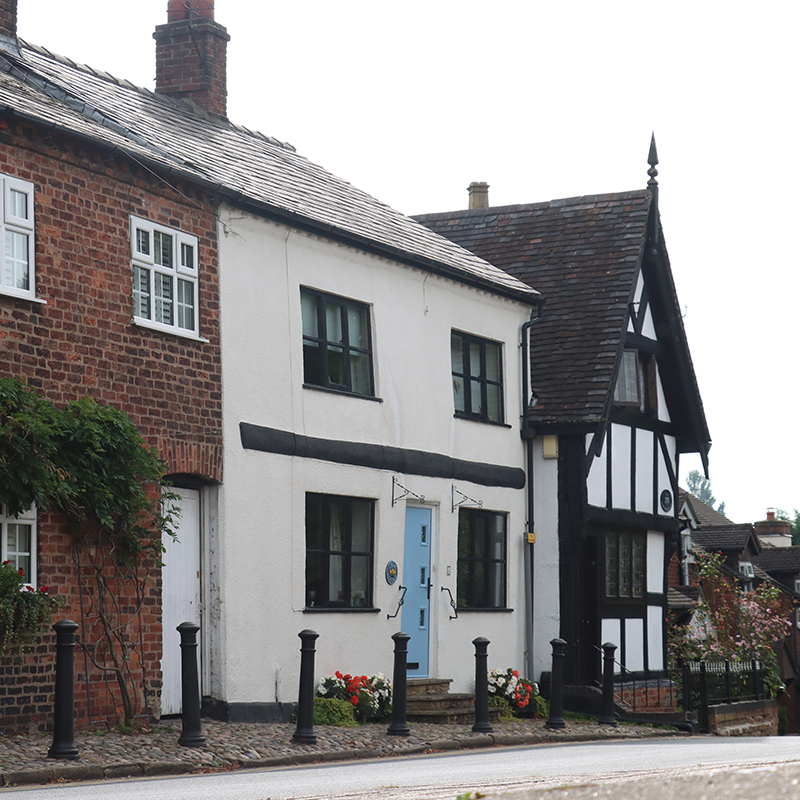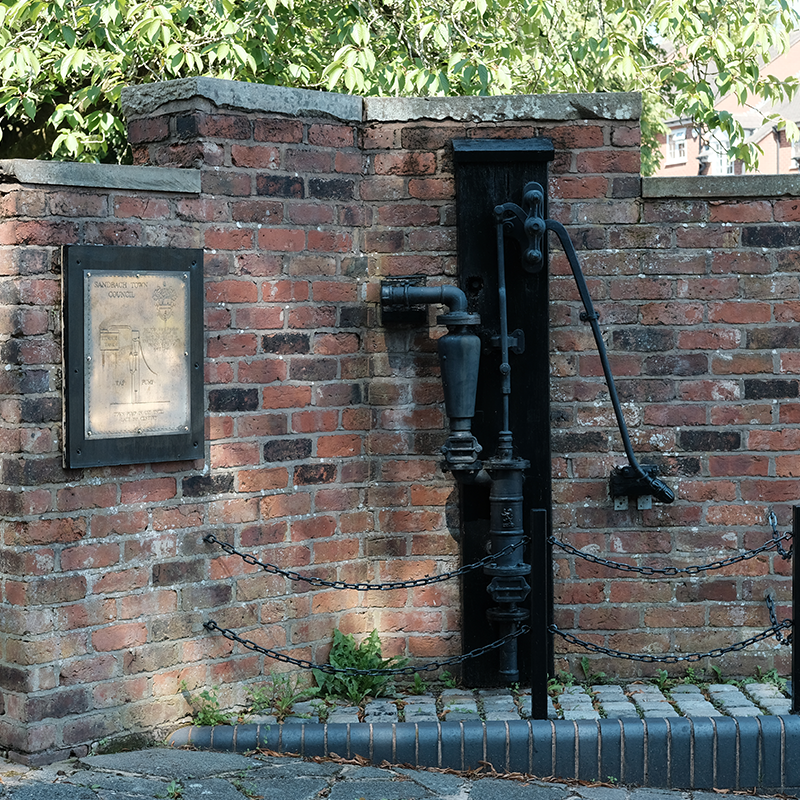A Potted History of Sandbach
Sandbach history is officially recorded from as early as the Doomsday book, but a significant part of its history occurred prior to William the Conquerer. In the 9th century local Saxons erected bejewelled Crosses to proclaim the Christian message and these famous Saxon Crosses still stand on the cobbles of the Market Square today.
Markets have been held in the town for many centuries and in 1579 Queen Elizabeth awarded Sandbach a market charter, which ensured the town’s prosperity.
During the 16th century the townsfolk produced delicious beer and fine worsted yarns. From 1820 coaching inns in the town centre welcomed travellers en route between London and Liverpool. One hundred years later transportation continued to dominate the town with the
production of heavy goods vehicles by Foden and ERF truck manufacturers. The multi award-winning Foden’s Brass Band continues to blow its trumpets for Sandbach throughout the world.
In the present day the townsfolk enjoy its markets, many community activities and the town’s setting in the beautiful Cheshire countryside.



More Sandbach History
History of Sandbach
The Roman road from Middlewich to Chesterton passed through Sandbach Township, but it is from Saxon times that Sandbach’s history can be traced. The Domesday Survey of 1086 states that the greater part of Sandbach was the property of Bigot – a major landowner within the county – and the remainder was in the possession of the Earl of Chester. There was a priest and church and it is thought that Sandbach parish, which covered a much larger area than the current township, was a minster parish in Saxon times, forming an important part of the Diocese of Lichfield.
Records from 1230 show that the land in and around Sandbach was held by Richard de Sandbach, High Sheriff of Cheshire. In succeeding centuries the ownership of the manor passed from the Sandbach family to the Leghs of Booth and then the Radcliffes of Ordsall, who held Sandbach for about 250 years. In 1611 the Radcliffes sold part of the centre of Sandbach to local yeomen and then in the following year sold the rest of the manor to the Crewes of Crewe Hall. The Crewes disposed of most of their Sandbach properties at a sale in 1917.
During the Civil War, a party of nearly 1,000 exhausted Scottish troops rode through Sandbach on horseback as they retreated from the Battle of Worcester. It was 3rd September 1651 and the annual September Fair was taking place on the Common. A skirmish occurred as the local people attacked the Scottish troops. A contemporary newspaper said: “The dispute was very hot for two or three houres, and there were some townsmen hurt and two or three slaine, the Townesmen slew about nine or ten and tooke 100 prisoners.” Since this time the central Common in Sandbach has been known as Scotch Common.
In the late 16th and early 17th centuries Sandbach was noted for the production of fine worsted yarns and malt liquor, and the revenue from these, together with that from the fairs and market, made the town modestly affluent.
In the 1820’s and 30’s Sandbach was an important coaching stop on the roads from London and Birmingham to both Liverpool and Manchester. Local inns, such as “The George”, were calling places for coaches, including the “Royal Sovereign”, the “Rocket” and the “Nettle”. Later in the 19th century, the town produced silk, boots and shoes and enjoyed extensive trade with its corn mills and salt works along the Trent and Mersey Canal.
The 20th Century saw the upsurge of the heavy vehicle manufacturing industry within the town. The Foden Steam Wagon enjoyed huge success and attained a worldwide reputation for economy and reliability. From the early 1930’s the industry concentrated on diesel-powered heavy goods vehicles, which were produced in the factories of both E.R.F. and Foden. In 1980 Paccar Inc. purchased the Foden company and eventually moved production away from Sandbach. The Foden brand was retired from new vehicle manufacturing in 2006, having celebrated 150 years within the industry. A similar fate befell the ERF brand, which was withdrawn from the truck market in 2007.

